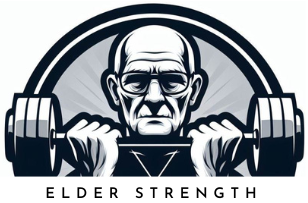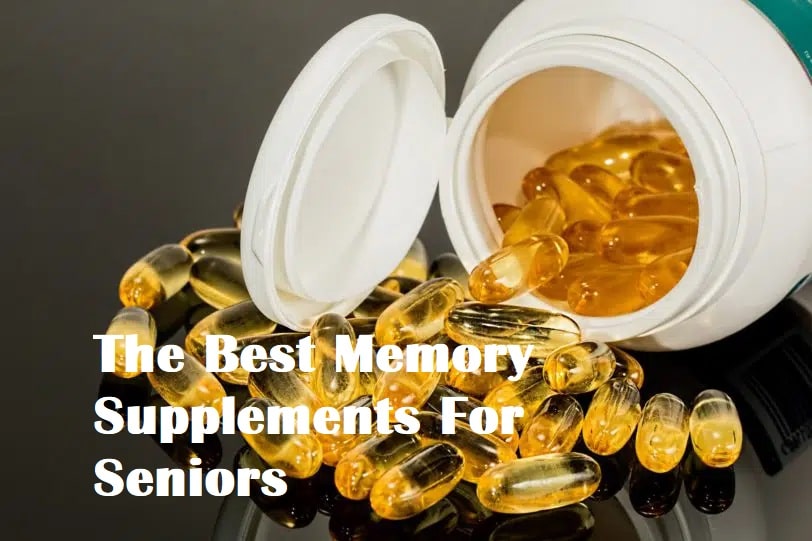As we get older our memory and cognition tend to deteriorate and slow down. In this post, we are going to look at the best memory supplements for seniors to help counter this age-related decline.
Having memory issues doesn’t always mean you are suffering from Alzheimer’s or some other form of dementia. In fact, it’s usually just a case of normal aging.
If your memory problems are serious and the onset is sudden it’s important to assess the situation with a doctor. Because loss of memory and impaired cognition can be a symptom of many serious illnesses.
Most memory issues in older age are caused by the natural age-related decline. It isn’t really dangerous on its own. But it can lower your quality of life and in the worst-case scenario lead to dangerous situations and accidents.
Fortunately, you can do quite a lot to prevent age-related memory loss. The first and most important thing is to use your brain. The brain works just like a muscle. You have to use it or you will lose it.
So attending activities that challenge your memory and thinking is incredibly important for your cognitive function as you age. This can include socializing with other people, playing chess, solving crossword puzzles, or even playing video games. Anything that makes you think and requires you to use your memory.
In this post, we will focus more on the physical aspect of memory loss prevention, however. Especially in supplements that can improve memory and prevent age-related memory loss.
Let’s start by looking at what causes an age-related decline in memory and what lifestyle choices affect it the most.
Age-related Decline In Memory
Forgetfulness is the symptom that wakes most seniors up to the cognitive decline that age brings. As we get older our bodies change. And so do our brains.
You might notice it takes a lot longer to learn new things. Or you can’t recall information as easily. Or you might simply start forgetting things like where you put your glasses or car keys.
These kinds of forgetfulness symptoms are often caused by normal age-related memory decline. And not serious memory problems like Alzheimer’s disease.
Symptoms of more serious memory problems include things like making poor decisions a lot of the time, loosing track of the year and time constantly, trouble having a conversation, problems taking care of the bills and constantly misplacing things and forgetting about them.
There are several reasons why our mental function declines with age. One of the key reasons is that the hormones and proteins that are responsible for regeneration and growth decline as we age.
The same hormones affect our muscle mass, bone strength, and physical performance as well. But they are also responsible for stimulating neural growth in the brain and repairing brain cells. This decline will naturally lead to a decline in performance as well.
Also, the part of the brain that is involved in the retrieval and formation of memories deteriorates with age. This will naturally further increase the decline of cognitive function and memory loss.
Finally there are several age related metabolic changes and diseases that affect the heart, the circulation and blood oxygen levels. All these can affect the circulation and the amount of oxygen your brain receives, which will naturally affect cognitive ability.
Diet And Cognitive Decline
Currently, it is uncertain how much diet affects age-related cognitive decline and memory loss. This study concluded that the Mediterranean diet might offer some protection against cognitive decline. Dietary fat and excess energy intake seem to be risk factors for cognitive decline in seniors. I talked more about this in the article Mediterranean Diet For Seniors [Is It Healthy?].
Fish consumption and cereals seem to reduce the risk of Alzheimer’s disease. At least in European and North American countries. That’s why fish derived Omega 3 is probably also a beneficial memory supplement. I talk more about this in the article The Best Omega 3 For Seniors.
Rather unexpectedly the relative risk of dementia was lower in seniors who drank three to four glasses of wine a day compared with total abstainers. It’s likely this is due to antioxidants and resveratrol and not the alcohol in the wine. Alcohol has several negative health effects so it’s wise to drink only in moderation and definitely not daily.
The effects of diet on cognitive decline seem to be relatively unexplored. It seems that a diet high in antioxidants and the specific macronutrients of the Mediterranean diet are likely beneficial for preventing cognitive decline.
Exercise Prevents Memory Loss
Besides eating a healthy diet and using supplements that improve memory, exercise has been shown to prevent cognitive decline.
The science is clear on the fact that aerobic exercise enhances brain function and memory. Trial studies with seniors involving resistance training (i.e. strength training) also provided evidence that resistance training may have cognitive and memory improving benefits as well. You can learn more about this in the article Benefits Of Strength Training For Seniors [Complete Guide].

The scientists concluded that resistance training may prevent cognitive decline in seniors through mechanisms involving IGF-1 and homocysteine. Both are growth factors.
Resistance training has also been established to reduce morbidity in seniors. Likely due to its preventing effect on age-related loss of muscle mass and strength.
The unfortunate consequences of sarcopenia may include an increased risk of falls and fractures as well as disability as I mentioned in the article Fall Prevention Exercises For Seniors.
So, it’s clear both resistance training and aerobic exercise have physical as well as cognitive benefits and they help you prevent age-related memory loss and cognitive decline.
The Best Memory Supplements For Seniors
The three supplements I recommend for improving memory and cognitive function in seniors are all common compounds found in many foods.
The levels of these compounds in typical diets are very low, however. And it’s likely seniors can benefit from the higher concentrations.
All of the recommendations are backed up by science as always.
It’s still important to realize that supplements are never a substitute for a diverse diet as I mentioned in the article Best Multivitamin For Seniors – Are They Worth It?
Supplements can also have interactions with medications and they can cause unwanted side effects.
So always be on the safe side and talk to your doctor if you have any hesitations about the safety of a supplement.
The Best Memory Supplements For Seniors: Creatine
Creatine is a compound mainly found in red meat. It has been used for decades by bodybuilders and power athletes to increase muscle mass and performance. It’s not common knowledge that creatine can actually increase cognitive performance. And especially help return impaired cognitive function to its prior level.
Creatine supplements increase your body’s stores of phosphocreatine, which is used to produce new ATP. ATP is the basic fuel for your cells. This includes both muscle and brain cells, that is.
The brain is the most metabolically active organ in the body. It is particularly vulnerable to the disruption of energy resources like ATP. Lack of energy will lead to cognitive decline. Creatine supplements can help maintain the energy levels within the brain cells and increase cognitive performance.
Here’s a great explanation of the effects of creatine on brain function by Jerry Brainum (YouTube embed. Content not owned or created by ElderStrength.com):
Diet Vs. Supplements
You can get creatine from red meat. But to get the several grams of it from diet alone would mean you’d need to eat 2.5 lbs of meat a day. Which is clearly not sensible or maintainable. Consuming high amounts of red meat has been associated with an increased risk of several cancers so it would be much wiser to get your creatine in a supplement form.
There are several different forms of creatine supplements on the market. At least monohydrate, citrate and pyruvate. But it has been concluded in many studies that the most affordable form of creatine, creatine monohydrate is just as potent as the more expensive ones.
Your body also synthesizes around 1 gram of creatine, so you should start with 2 to 3 grams of supplemented creatine and see how your body reacts. I recommend getting affordable bulk creatine from a reputable manufacturer. A good example you can order online is Dual Health creatine monohydrate bulk powder (Affiliate link. I earn a small commission without any extra cost to you. Helps to keep the site running).
You can learn more about creatine in the article Creatine for seniors. Is it useful?
The Best Memory Supplements For Seniors: Phosphatidylserine
Phosphatidylserine is an organic phospholipid that is found in the cell membrane of every single cell in your brain. It has two very important biological functions.
Firstly it works as a cell signal for apoptosis, or cell death. When a cell reaches the end of its life cycle or becomes compromised, phosphatidylserine in the cell membrane signals macrophages, the white cell scavengers of our body, to engulf the cell and get rid of it.
Secondly, phosphatidylserine plays an important role in blood coagulation.
Phosphatidylserine is bio-synthesized in the body in small amounts but it’s mostly acquired through diet. The highest sources of Phosphatidylserine are meat and fish. Vegetables have only very low levels of this compound except for soybeans.
There has been some research on Phosphatidylserine on its beneficial effects on memory and cognition.
Meat Vs Soy
There is some debate if phosphatidylserine extracted from meat has the same benefits as soy-based phosphatidylserine, as the soy-based compound is the only one with some scientific proof of improving memory function in seniors with memory issues. As shown by this study done on Japanese elderly.
The study concluded that:
“in the subjects with relatively low score at baseline, the memory scores in PS treated groups were significantly increased against the baseline, while those of placebo group remained unchanged.”
Meaning that the seniors with the most issues with memory and cognition had the most benefit from phosphatidylserine, while the seniors without any significant issues had no significant benefit from it.
This doesn’t mean that using supplemental phosphatidylserine doesn’t provide some protection against cognitive decline but the researchers have concluded this requires more extensive studies to be proven.
Phosphatidylserine definitely seems to be a promising supplement and because it’s abundant in your body it’s considered a very safe supplement. A good option to buy online is Bestvite Phosphatidylserine (affiliate link).

The Best Memory Supplements For Seniors: Resveratrol
Resveratrol is a natural compound found in red grapes and in red wine. It has been speculated to be one of the key elements that make the Mediterranean diet so good for cognitive and cardiovascular health. It is also found in some berries and peanuts in small quantities.
Resveratrol is essentially an antioxidant that is best known for its potential for lowering cholesterol levels and preventing coronary heart disease.
Studies suggest it can have beneficial effects for lowering blood pressure, blood fats, lengthening lifespan (at least in certain animals), increasing insulin sensitivity, joint pain and cancer cell suppression. Most importantly for our use, it seems to protect the brain and improve memory.
Unfortunately, most studies of resveratrol have been done on animals and comprehensive human studies are lacking. However, this study provided evidence that resveratrol can improve memory performance in older adults:
“This study provides initial evidence that supplementary resveratrol improves memory performance in association with improved glucose metabolism and increased hippocampal FC in older adults. Our findings offer the basis for novel strategies to maintain brain health during aging.”
So resveratrol is definitely a supplement you can try if you are looking to prevent or reverse age-related memory loss and cognitive decline. A good option to buy online is aSquared Nutrition Maximum Strength resveratrol (affiliate link).

Conclusion
I hope you found these tips for the best memory supplements for seniors useful and will try them yourself. If you want to report your results or have any questions, you can share them in the comments section below.
Age-related cognitive decline might seem scary and disheartening. But you should not worry about it too much. If you are suffering from memory issues the first step is to talk to your doctor, who will perform some routine tests to make sure you are not suffering from something more serious.
In all likelihood, your memory issues are related to normal aging and are nothing to worry about since you can reduce and prevent them with a combination of exercise, diet, lifestyle, and supplements.
If you are not already doing strength training, now is the time to get started as it will protect your brain as well. Combine it with an active lifestyle and some cardiovascular exercise. Also aim to maintain your weight at a healthy level and you have done likely everything in your grasp to prevent age-related cognitive decline.
If you want to learn more about strength training and health tips for seniors, please subscribe to the newsletter and bookmark this site.
Thanks for reading and see you next time!





Hi!
Thank you for such an informative article. I’m in my early 50s but I want to start early fighting memory loss and things like that. My dad lived to be 92 and I wish I had known about stuff like this for him. He was in great shape physically for his age but mentally, he suffered some and it was really hard to watch. I think it’s awesome that you’re doing articles like this to help older people!
Thanks for the comment Shiloh! Alzheimer’s and other forms of serious dementia are always horrible to watch progress for the loved ones. I have first hand experience with this as well. Fortunately there are constant breakthroughs in the research concerning Alzheimer’s at least. One theory being that it’s actually a metabolic disease, even referred to as diabetes type 3 because it’s associated with insulin resistance and other metabolic issues withing the brain cells and central nervous system. Ketogenic diets have been even shown to halt the progress of Alzheimer’s. Understanding the real mechanisms behind the illness is important for finding a remedy. There is a high a possibility of finding a medicine or preventing measures in the upcoming decades so let’s hope for the best! In the meanwhile it’s best to eat healthy, exercise and keep a healthy weight.
Gee, I thought I was reasonably knowledgable about brain health until I read your article. Creatine, Phosphatidylserine, and Resveratrol are all new to me. I am especially surprised that I hadn’t heard of creatine because I ate a plant-based diet for a couple of years and the only supplement I thought I needed was B-12. I take Gingko and Focus Factor but the most effective thing I have done for clearer thinking was to give up sugar and processed foods. Thanks so much for the information.
Thanks for the comment Theresa! Creatine is actually especially important for Vegans and vegetarians because they don’t really get any in their diet. I was actually surprised myself on both the research on cognitive effects of creatine and my first hand experience with improving cognition using high amounts. I was familiar on it’s useful effects for weight training but it’s a real super supplement for overall health and performance even though the effects are subtle. It’s dirt cheap as well. I’ve tried Ginko Biloba myself but the research on it isn’t very strong and it has some potential negative health effects as well so be careful using it.
Not calling myself a senior yet, but aging and stress is playing part in my case. I am 45 years young and really appreciate the information on Creatine – I was not aware of this particular option to supplement our body system! Watching food I consume is not enough and adding creatine will surely help!
Thank you for your article!
45 is actually right about the age we start to get noticeable cognitive decline. Subtle, but noticeable. Stress, lack of sleep and exercise and a bad diet will make the effects even worse. Creatine is definitely something you could try but the most important part in your age is to get your lifestyle in check and reduce stress. All the best to you Gints!
I am always on the look for these types of products, age is causing me to be more and more cloudy.
I hope the post gave you some ideas! Remember that you always should start by talking with a doctor if you plan on introducing new supplements as they can have interactions with your drugs or medical conditions.
i take this and it is great
Glad you’ve found it useful Frank! Most people benefit from some supplements, especially creatine.